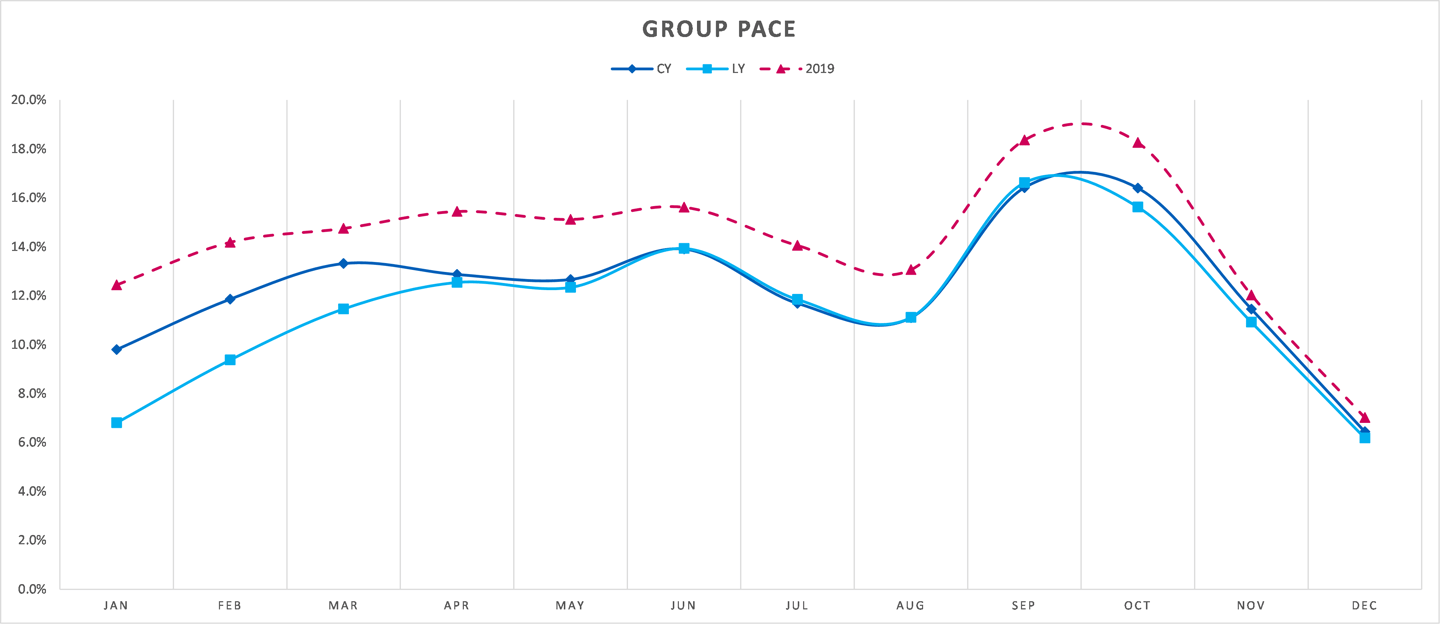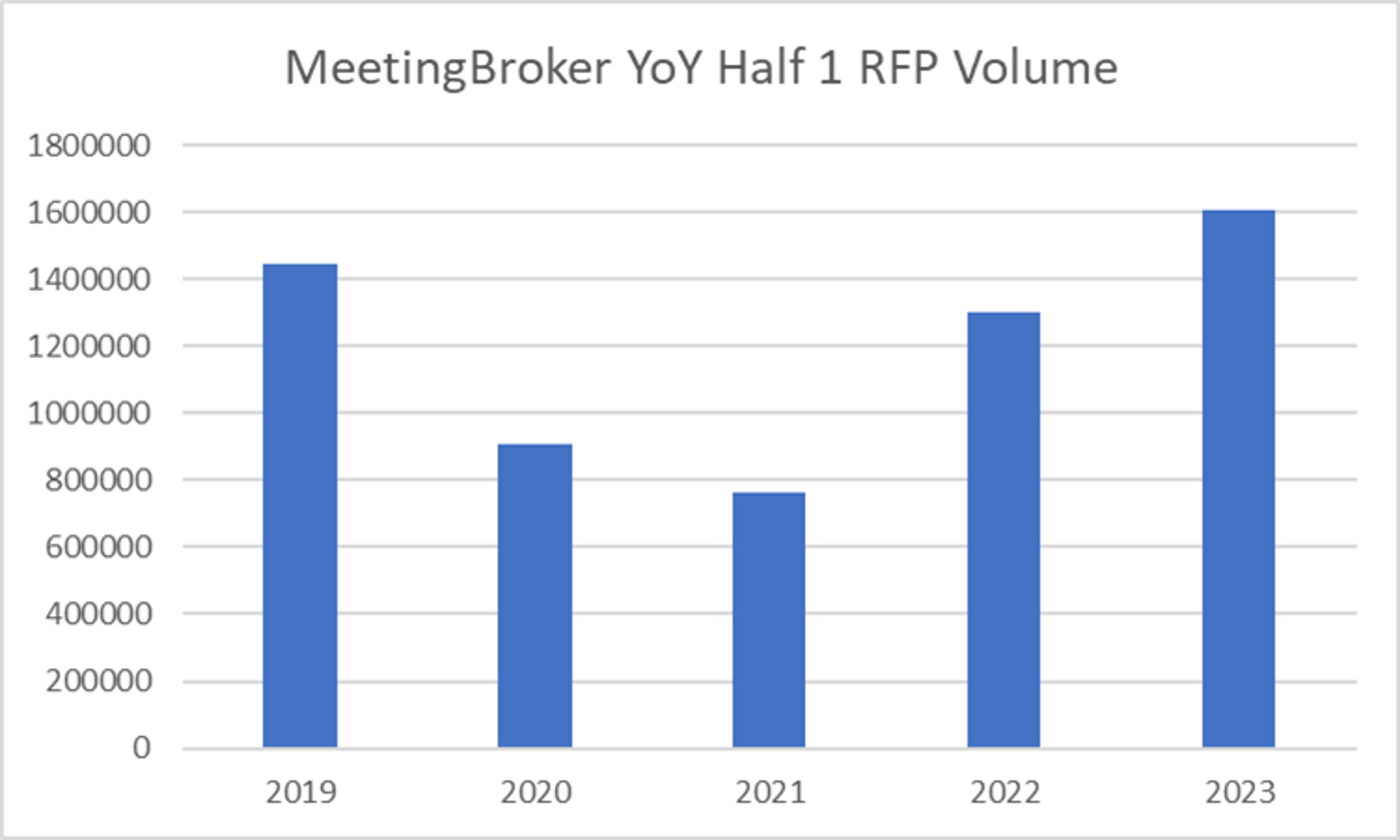Group Travel Revival Trends in 2023 and Beyond
Most of us have fond memories of group travel. For many, it will be the excitement of a school trip. For others, it may be an informative business conference. Group travel offers business groups, industries, or friends a chance to reconnect. Now that the pandemic has ended, people are enthusiastically re-embracing these experiences. The message is clear: group travel is here to stay.
For hoteliers, group travel remains essential. It represents a significant part of the global hospitality industry, particularly during non-holiday seasons. Group travel also gives hoteliers the ability to plan ahead, as groups tend to book further in advance. Therefore, having a successful plan to entice group business is more important than ever.
Historically, group travel has been thought of as a focus for larger hotels due to capacity. However, new data-led technology solutions allow more efficient strategies, ensuring strong customer relations, increased revenue opportunities, and well-executed events even with very small teams. This has opened the group travel market to boutique hoteliers.
The current state of group travel
Group travel is recovering quickly post-pandemic. There were 12 million more group hotel room nights booked worldwide in H1 2023 compared to the same time last year, an increase of 18%, according to Amadeus Demand360® data.
The proportion of total hotel nights which are taken up by group bookings is also higher. Amadeus’ data shows that group bookings make up approximately .3% more of overall hotel occupancy in July 2023 in comparison to July 2022. This may seem like a small increase, but the additional number of rooms per night can provide a noticeable boost in annual revenue.
This is particularly true in the US where group travel is showing positive momentum and even outperforming 2022 during several months this year.
Additionally, data on the number of requests for proposals (RFPs) is helpful as it reflects the overall demand for events. For 2023, demand worldwide continues to be positive according to Amadeus’ MeetingBroker data. RFPs have risen significantly and are now exceeding 2019 levels considerably.
Overall, more people are travelling in groups and they make up a greater proportion of guests in hotels. These numbers show a clear upward trend for group travel over the last few years.
Trends in group travel
As the industry and guest expectations continue to evolve, hoteliers must adapt to several key changes in group travel:
Shifting sustainability expectations
A report we published in 2022 found that of business travel leaders, 66% felt that sustainable business travel would be a moderate priority in the next 12 months, and 19% said it would be a high priority. Therefore, sustainability is especially important for business travellers.
Combine this with the fact that large conferences and events have typically had large environmental footprints. This puts particularly strong pressure on hoteliers to make group travel more sustainable – pressure which is only likely to increase in the future as sustainability continues to be a priority for organisations and consumers alike.
Catering to a post-pandemic perspective
The pandemic has changed how workers view live events, with a large proportion of the workforce now working remotely. Hoteliers must appeal to this new perspective.
As a result, conferences are having to change the way in which they appeal to guests. A good way to do this is going ‘beyond the boardroom’ basics. Some suggestions on how to do this are building more downtime into agendas, while elevating the in-person experience to include popup workstations, wellness, or other health-focused initiatives.
The best way for hoteliers to stay on top of changing traveller expectations is to use data. High-quality, comprehensive data sets on demand, rates, and group preferences can help hoteliers to predict waves of travel and prioritise their limited resources, while helping them implement pragmatic actions to succeed amid the changing events landscape.
Appealing to the blended or ‘bleisure’ traveller
Appealing to bleisure travellers (a mix of business and personal travel) can help turn those onsite for business into a loyal leisure customer. According to an Expedia survey, 60% of business trips taken by those surveyed turned into bleisure trips indicating that this is a promising long-term revenue stream.
Flexible conference agendas can accommodate business travellers wanting to experience other onsite amenities and services. This means that hotels must widen their offering beyond events and encourage attendees to explore other property features (spa, gym, restaurant etc) or even extend their stay to enjoy all the property has to offer.
Personalizing your group travel offering
Hoteliers should personalise their offerings to each group agenda. Even if not given specific instructions, hoteliers can recommend function room size and relevant add-ons with data at their disposal. This is particularly the case when considering guests on business trips. A well timed, personalised marketing promotion can convert that conference guest into a bleisure guest.
Furthermore, group travel tends to be consistent, often on an annual basis. An informed personalised approach can help to keep groups coming back to your hotel and increase loyalty for continued use of hotels for conferences and group travel.
Leveraging technology
Often the primary concern for hoteliers is capacity and costs. As a result, personalisation and changing traveller perceptions can sound worrying to hoteliers, particularly those running more boutique establishments. However, technology can make group travel more efficient.
Centralised meeting distribution and automation technology can help to streamline processes and process more group travel, more efficiently. This opens the benefits of group travel to even the smaller hoteliers.
Staying on top
How events are hosted, what agendas look like, meeting sustainability demands, and booking lead times are all evolving. This means that group travel is changing and hoteliers will need to change with it. Sales and catering software, such as Amadeus’ Delphi®, can be the gamechanger in helping hoteliers prospect business and execute events with ease, all while providing the data insights necessary to drive consistent demand and loyalty.




